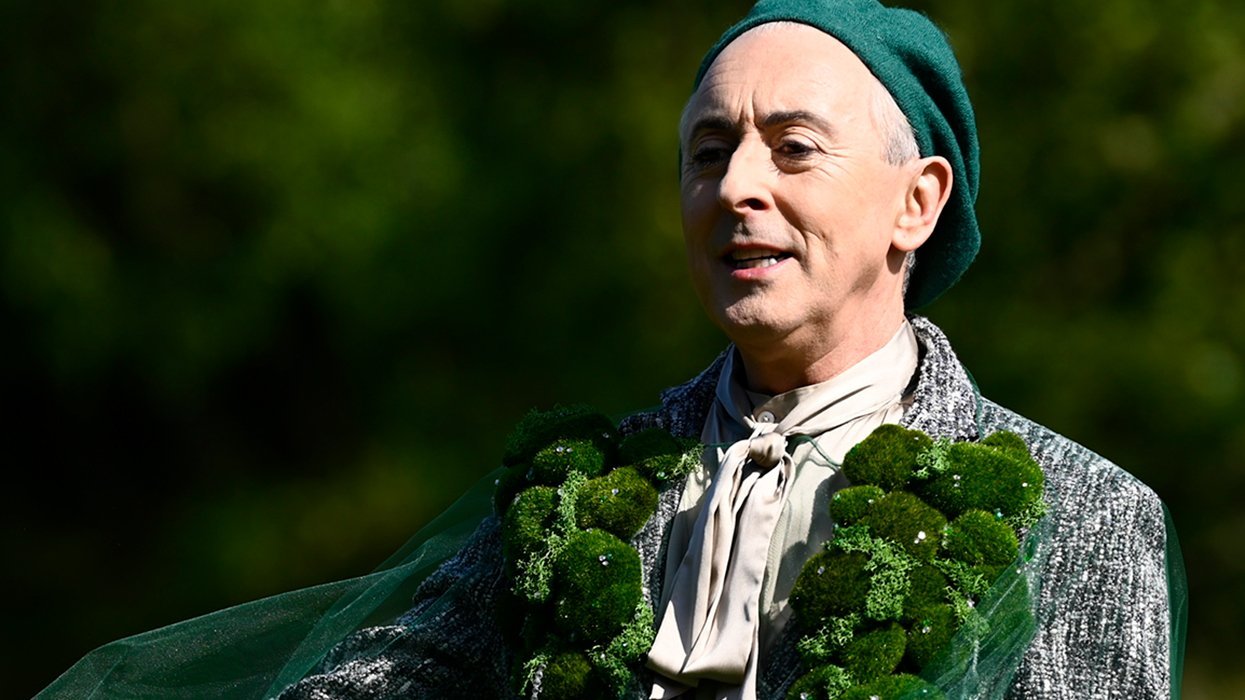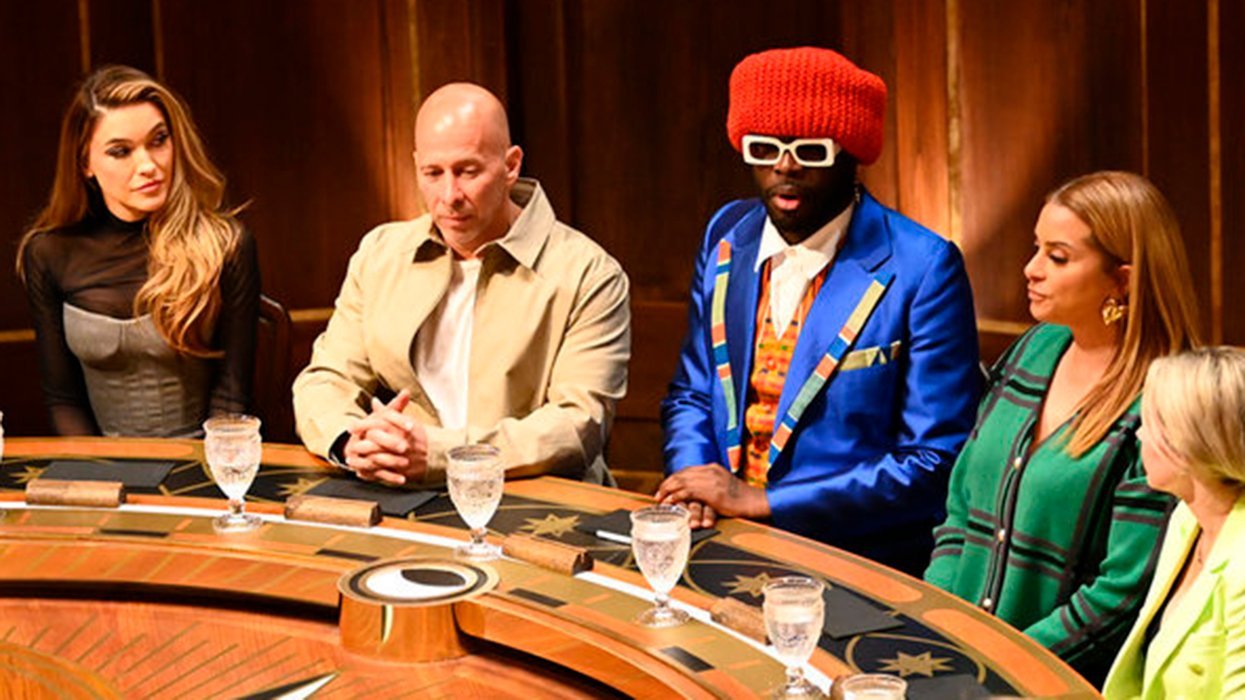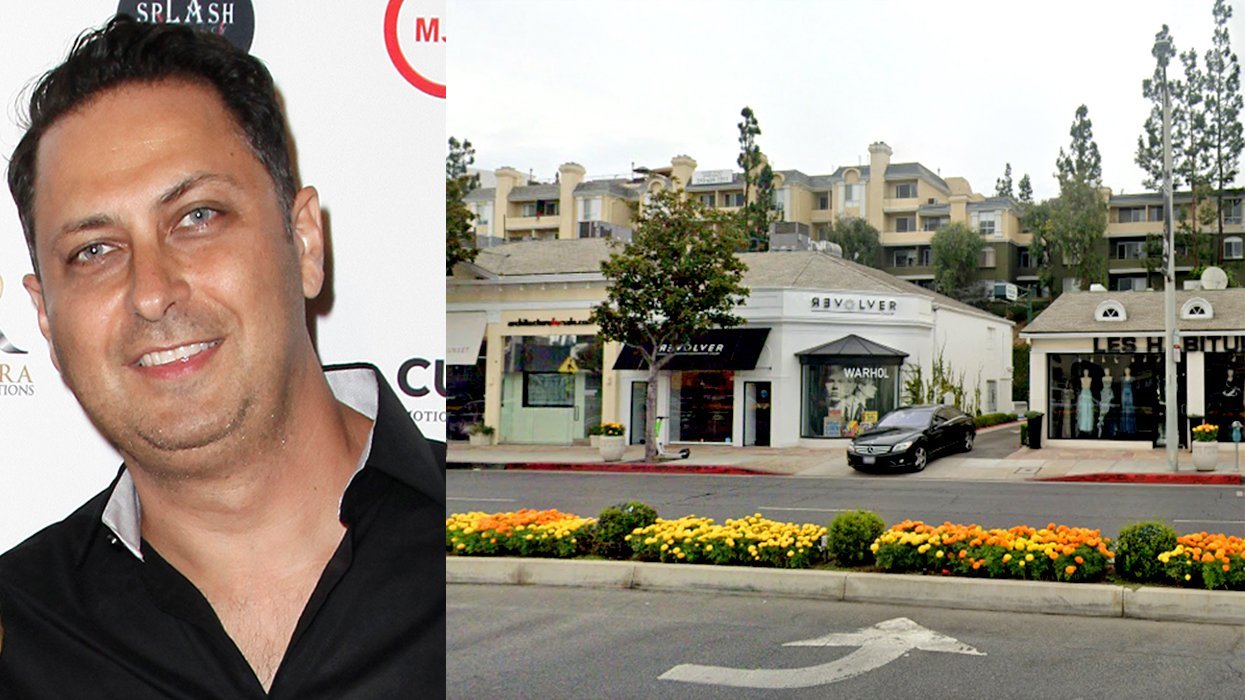Matt Tyrnauer is a promiscuous expert: He can speak commandingly on politics, fashion, the Hays code, the church, Manhattan society, documentary financing, the publishing industry, the finer antiques of queer vernacular. We move from one subject to the next, to the next, and so on. We're at a brunch spot near his Atwater Village office talking about his latest doc, Scotty and the Secret History of Hollywood, whose subject is himself an expert - the expert - on promiscuity: Scotty Bowers, the ninety-something lifelong hustler whose Hollywood memoir Full Service became a surprise bestseller for Grove Atlantic. To put Scotty's life in context, Grove is a publisher where the lewd and the sophisticated are often uttered on the same breath, and it forged its reputation eons ago with texts like the uncensored Lady Chatterley's Lover and the original American edition of the Marquis de Sade's antediluvian porno. Both publications sent our culture into mass hysteria years after some of the naughtiest events described in Full Service.
Related | Scotty Bowers: Old Hollywood's Greatest Madam?
In the book, Scotty writes that after his return home from World War II, he worked night and day out of his gas station on Hollywood Boulevard, pimping via phone and hooking his rotating crew of hustlers onto the closeted elite of Los Angeles, including countless Hollywood legends. It all began with Walter Pidgeon, who pulled up at the gas station one day and brought handsome, hung Scotty to one of George Cukor's weekend pool parties, a regular oasis for gay Hollywood. A maximal work ethic, a high sex drive, and a fanatical contempt for the uptight took over from there. His is a classic Lyndonian case of a working-class wanton overstepping the puritanism of the middle classes to frolic in the libertine excess of a uniquely American aristocracy. With its page-turning prose on the sex lives of the stars, many compared Full Service to Kenneth Anger's Hollywood Babylon, but it owes as much to de Sade and his reprobate catalogue of debaucheries, even though the images of Scotty's subjects were manicured in the refined fashion of the studio system: Spencer Tracy, Vivien Leigh, Cary Grant, Ava Gardner, Katharine Hepburn, Rock Hudson. He describes Charles Laughton and Tyrone Power as coprophiles. Even the Duke and Duchess of Windsor make a particularly hedonistic appearance. And if you happen to believe Scotty - a great many do not - that makes Full Service and the new Scotty movie all the better.
For the most part, I believe Scotty Bowers, who won me over in conversation some years ago at the Chateau Marmont. Tyrnauer believes him too. The Scotty film may not change many minds in that regard, but it certainly makes a strong and detailed case. "Everything checks out," he says. "Just for example, there are letters in the Cukor archives making references to Scotty, and primary sources placing Scotty at Cukor's house. If you were intimate with George Cukor, why wouldn't you know William Haines and Joan Crawford, and why wouldn't you, if you were tricking George Cukor five times a week, get passed along to someone else he knew - and he knew literally all of gay Hollywood - especially if you're good looking and you have certain attributes that may or may not be attractive to certain members of the community."
Related | Kiss and Tell: Scotty Bowers' Scandalous Sex Tales of Gay Hollywood
The film alternates between verite footage of Scotty in his various overstuffed homes and gossipy interludes of raunchy yarns, but the subtext is what's compelling to Tyrnauer, who describes Scotty as a trailblazer. "In Hollywood, homosexuality was dealt with through a codified taxonomy of degenerate types, so Scotty was coming up in a time when heterosexuality had to be invented. Stephen Fry actually says that Scotty was pre-gay, and what that means is that the time in which he was wildly sexually active and practicing his form of pansexuality was in the period before the word gay meant what it means now. The siloing of sexualities is relatively recent." He orders a second Aperol spritz and begins to talk about how the Hays Code plays into all of this: The morals clauses enforced by the studios after the Code effectively put Hollywood back into the closet just at the time when queer sexualities began to appear on screen, albeit in code. "The vice squad at the time was an anti-gay Gestapo that collaborated with the press, who would humiliate gay people and ruin their lives. Scotty's circle of gay Hollywood was self-protecting, because the minute you stepped out of that gay world, the risks of leaking any of the secrets were so high and the consequences so grave that people really did keep them secret, and Scotty's tricking made him something of a folk hero for this closed community which took for granted that Cary Grant was bisexual, that Rock Hudson was gay."
Tyrnauer hopes the film opens up a new generation of gays to the secret joys of their queer forbearers. "I do need a younger audience too, but I've got the daddies. So many older gay guys are interested in Scotty's story because they can remember being gay and isolated in a more closeted time..." He pauses to let a train go by; the restaurant sits a few yards from the tracks. "Part of the charm of the place...And for Scotty, the movie is kind of a mirrored hall of memories
where he's walking back in time and confronting his very, very distant past. The period when he started the gas-station-as-brothel was a very long time ago now, when he was 21 or 22. Scotty is in his nineties. The world is utterly different now. The city of Los Angeles is a different place. That's part of the point of the film. Here's the rare person who can actually be a primary source to what it was like to live on the edge in a very different time. LA's the city of the twentieth century, and there is no better figure to use as the fulcrum of the sexual underworld than Scotty."




















































































Beware of the Straightors: 'The Traitors' bros vs. the women and gays